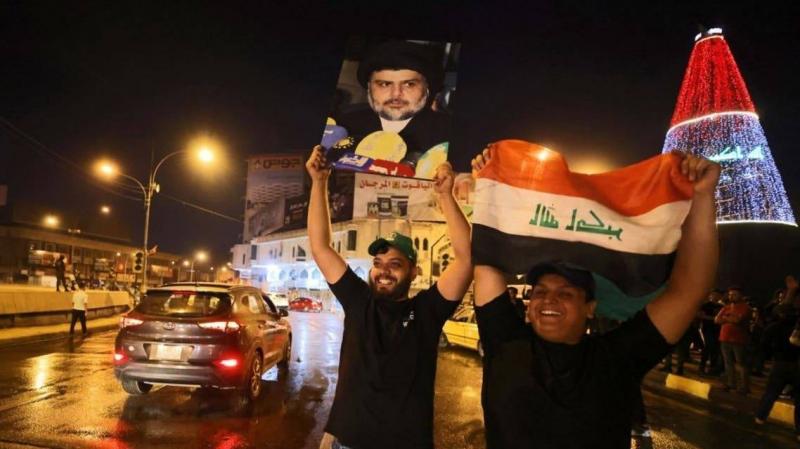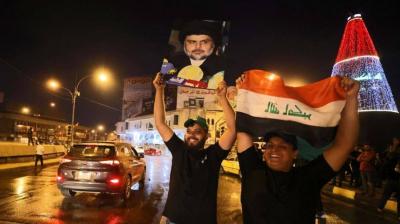Political forces close to the "Fatah" alliance, which lost in the Iraqi elections, announced today, Tuesday, that they would appeal the announced results, asserting their refusal to accept them. These forces stated that the electoral commission did not adhere to the legal procedures, as they put it. The Fatah alliance is led by Hadi al-Amiri and includes parties with armed factions, with its influence concentrated in the southern and central provinces as well as in the capital, Baghdad, in addition to its participation in the provinces of Diyala, Salah ad-Din, and Nineveh.
**Sadr Bloc Tops Results**
This comes as preliminary results revealed the names of the blocs that obtained the highest number of seats in the parliament, as announced by the electoral commission during both the special and general voting. According to these results, the bloc with the highest number of seats in parliament is the Sadr bloc led by Muqtada al-Sadr, with 73 seats, followed by the Taqaddum bloc, headed by former Speaker of the House Muhammad al-Halbousi, with 38 seats. Additionally, the State of Law bloc led by Nouri al-Maliki came in third place with 37 seats in parliament, according to what the Iraqi News Agency (INA) reported.
The head of the commission, Jalil Adnan, said in a press conference that the commission would accept appeals within three days. He added that the results of manual counting and sorting were consistent with the electronic voting results for both the special and general votes, noting that the commission had published the preliminary results of the elections for all provinces.
**Unprecedented Boycott**
In addition, some observers, according to reports from Agence France-Presse, considered that voter participation in these early elections was low, recording unprecedented boycott rates. They noted that this electoral process barely motivated voters who were angry over chronic corruption, poor public services, and the dominance of some armed factions, believing that most Iraqis had lost hope that this political system could bring any change capable of improving their living conditions. It is noteworthy that in 2018, the participation rate reached 44.52%, according to official figures, which some considered exaggerated at that time. The current elections were called several months ahead of their initially scheduled date after being planned for 2022, aimed at calming popular anger following the popular uprising that erupted in the fall of 2019 against corruption, deteriorating public services, and economic decline in a country rich in oil resources, alongside party quotas and the influence of some armed factions.




